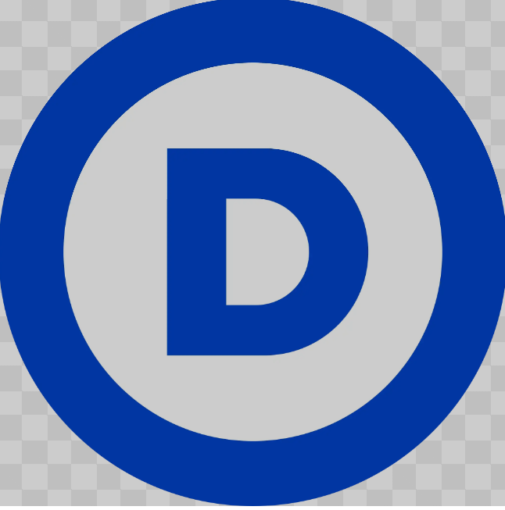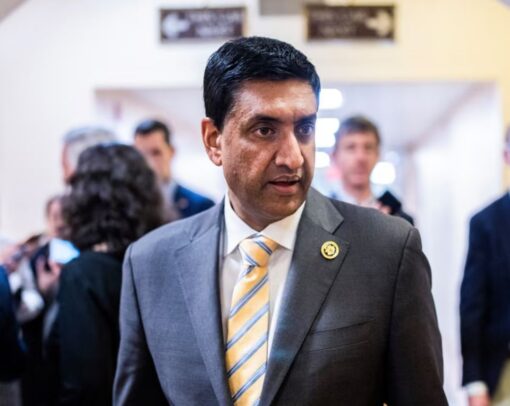A group of 46 House Democrats is set to deliver a letter to President Donald Trump and Secretary of State Marco Rubio, urging the U.S. to formally recognize Palestinian statehood.
Led by California Representative Ro Khanna, the letter emphasizes the “long overdue need to recognize Palestinian self-determination” and highlights the urgency of addressing the humanitarian crisis in Gaza.
The lawmakers’ message coincides with the conclusion of the United Nations General Assembly and follows a wave of international calls for recognition from countries including France, the UK, Canada, Australia, and Portugal. These nations have argued that formal recognition of Palestine is critical to advancing peace and stability in the region.
The conflict in Gaza has escalated into a catastrophic humanitarian disaster, with more than 60,000 deaths and widespread famine. Recent military operations in Gaza City have displaced hundreds of thousands of residents, further intensifying the urgent call for international intervention and recognition of Palestinian rights.

“Just as the lives of Palestinians must be immediately protected, so too must their rights as a people and nation urgently be acknowledged and upheld,” the letter reads. The lawmakers encourage other countries that have not yet recognized Palestinian statehood, including the United States, to act decisively.
Several prominent House progressives have joined Khanna in signing the letter, including Representatives Greg Casar, Pramila Jayapal, and Maxwell Frost. The letter’s circulation has expanded rapidly, signaling growing support within the Democratic Party.
Khanna describes the initiative as a “litmus test” for Democratic leaders, particularly those who have yet to endorse recognition, suggesting that inaction puts them at odds with the priorities of younger voters and the global community.
The letter advocates for a framework consistent with French President Emmanuel Macron’s earlier proposals, ensuring Israel’s security while advancing Palestinian self-determination.
Key elements include the disarmament of Hamas in Gaza and cooperative efforts between the Palestinian Authority, Arab allies, and Israel to stabilize the region.
Pro-Israel advocacy groups, including J Street, have publicly endorsed the letter. The organization argues that recognizing a Palestinian state is essential for Israel to maintain its democratic and Jewish character, countering efforts by far-right factions in Israel to prevent Palestinian sovereignty.
President Trump has publicly opposed Palestinian statehood, framing recognition as a reward for acts of terrorism, particularly citing Hamas’ October 7 attack. Senior administration officials have described coordinated recognition efforts by other countries as largely symbolic and unlikely to influence U.S. policy.
Khanna, however, emphasizes the generational and political shift in the United States, suggesting that younger Americans and future Democratic leaders will actively support Palestinian statehood. He frames the letter as a “clear” message to the administration and the international community about America’s evolving stance on human rights and Middle East policy.
In the Senate, Democratic-led efforts mirror the House initiative. Senator Jeff Merkley introduced a resolution calling for the recognition of a demilitarized Palestinian state alongside Israel.
While the measure faces challenges in the Republican-controlled chamber, it signals a growing commitment among Democratic lawmakers to address long-standing inequities and advance peace in the region.
The letter from the House Democrats underscores the broader tension between U.S. foreign policy, Israel’s security concerns, and the imperative to acknowledge Palestinian rights. Advocates argue that formal recognition is not only a moral obligation but a strategic step toward a sustainable two-state solution.
While immediate policy shifts are unlikely under the current administration, the coordinated Democratic effort demonstrates increasing pressure on U.S. leadership to align with international partners and humanitarian principles.
It also reflects the evolving domestic political landscape, where younger voters and progressives demand decisive action on issues of human rights and international justice.
Recognition of Palestinian statehood by the United States, the letter argues, is essential to maintain credibility on the global stage, particularly among UN Security Council members who have already endorsed sovereignty. Failure to act risks isolating the U.S. diplomatically while perpetuating the humanitarian crisis in Gaza.
The initiative by Khanna and his colleagues positions the Democratic Party as a champion of human rights and accountability, seeking to balance Israel’s security with Palestinian self-determination.

As global attention focuses on the Middle East, the letter represents a bold assertion of the United States’ potential role in advancing peace and justice.
The House Democrats’ letter marks a significant moment in U.S. foreign policy debates over the Israeli-Palestinian conflict.
By urging recognition of Palestinian statehood, lawmakers are highlighting humanitarian concerns, advocating for a two-state framework, and challenging the administration to reconsider its stance amid escalating violence and displacement in Gaza.


